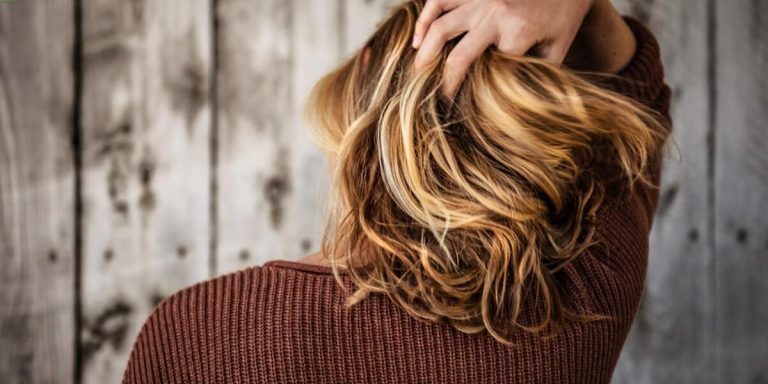Does Ashwagandha Cause Hair Loss? An Insight into the Herbal World
The question “does ashwagandha cause hair loss” has become prevalent in contemporary health discussions due to the rise in popularity of herbal remedies. Known for its potent medicinal properties, Ashwagandha is often hailed as a miracle herb by Ayurveda practitioners and natural wellness enthusiasts alike. But alongside its numerous benefits, concerns over potential side effects like hair loss have emerged.
Exploring these concerns necessitates an unbiased look into scientific studies centered on this ancient herb’s influence on our locks’ health. As we delve deeper into understanding whether this respected adaptogen could be contributing to your thinning strands or bald patches, it’s important that each claim is backed with credible research and expert opinion.
Did you know?
Little known fact: According to a study published in the Journal of Alternative and Complementary Medicine, Ashwagandha has been found to stimulate enzyme activity that leads to hair follicle growth, debunking claims it might cause hair loss.
Understanding the Impact of Ashwagandha on Hair Health
On the contrary, research indicates ashwagandha might be beneficial rather than harmful when it comes to healthy locks. It is primarily considered an adaptogen – a natural substance believed to help the body cope with stress and anxiety which are often linked directly to premature hair shedding.
Furthermore, components found within this wonder herb such as antioxidant flavonoids target free radicals – culprits of oxidative stress that can stifle your follicles’ ability and leave them weak and brittle. Add its potent anti-inflammatory properties into the equation and you have got yourself not just any regular supplement but what could well be deemed ‘hair superfood’.
Yet caution should always precede consumption particularly if there’s pre-existing medical conditions involved like thyroid imbalances where Ashwagandha may exacerbate symptoms translating perhaps understandably into accelerated hair fall rate.
Exploring Scientific Evidence: Ashwagandha and Hair Loss Correlation
Ashwagandha, a well-known herb in the arena of Ayurveda, has been spotlighted for its potential benefits on hair health. In particular, many people ask: “Does Ashwagandha cause hair loss?” This is an important query to address considering any implications it could have on one’s scalp and overall hair condition.
Firstly, let’s delve into what scientific studies elucidate about this relation. A research conducted by Sabinsa Corporation posits that ashwagandha may actually promote healthy growth of human scalp tissues and not lead to hair loss. The study found increased amounts of Dermal Papilla Cells (DPC) – crucial cells involved in the regulation of hair growth cycle after consuming ashwagandha extracts over a certain period.
Another documented survey delving deep into the effects manifested that participants using topical applications enriched with ashwagandha experienced lesser issues related to alopecia or general thinning compared to those who didn’t use such formulas.
However, everyone possesses unique biological compositions leading to different bodily responses towards substances like herbs. It implies while some can benefit considerably from regular intake or application; others might face adverse reactions resulting in aggravated conditions like red-scalp syndrome and subsequently rapid shedding cycles.
Ashwagandha Consumption Patterns and Their Relation to Scalp Wellness
Ashwagandha, an ancient medicinal herb prominent in Ayurvedic medicine, has been turning heads recently due to its potential influence on scalp health and hair growth. Some users have raised doubts: does Ashwagandha cause hair loss? The answer is multidimensional.
Firstly, understanding the consumption patterns of Ashwagandha reveals it’s generally used as a stress reliever. Chronic stress disrupts essential bodily functions leading to abnormal hormonal balances resulting in various problems including alopecia or hair loss.
Interestingly though, instead of causing hair fall out directly, Ashwagandha supports your body’s physiological systems by reigning cortisol levels – commonly recognized as ‘the stress hormone’. When these hormones are balanced properly within normal ranges conducive for healthy functioning; the possibility of experiencing conditions like telogen effluvium (hair shedding) diminishes significantly.
Let’s consider another aspect – dosage. Like any other supplement or medication, excess intake could trigger unwanted side effects such as inflammation and irritation which can potentially lead to scalp issues thereby initiating plausible avenues for probable thinning and subsequent falling off hairs over time if not monitored and controlled effectively.
Moreover from an ayurvedic perspective; consuming this potent adaptogenic herb holistically improves overall well-being enhancing proper blood circulation especially focused towards nourishing our follicles thus promoting stronger roots subsequently deterring premature greying along with avoiding breakages & split ends while also vitalizing rapid regrowth eventually presenting you luscious locks exuding vibrant vitality!
Evaluating Common Misconceptions About Ashwagandha and Baldness
With the rise in popularity of natural health supplements, ashwagandha has recently taken center stage for its numerous beneficial properties. However, a prevailing misconception surrounding this adaptogenic herb is that it might contribute to hair loss. This perception may stem from rare instances where users have reported experiencing hair fall post-ashwaghanda consumption.
It’s crucial we address these concerns and shed some light on scientific evidence regarding its effects.
Ashwagandha primarily functions as a stress-reducing agent; high cortisol levels play havoc on our physiological systems including inducing premature baldness or thinning of hair follicles – two early signs of patterned baldness. On the contrary to causing harm, studies suggest ashwahganda can actually mitigate such conditions by combating increased stress hormones, thus indirectly aiding in maintaining healthy locks.
While isolated cases should not be fully disregarded since individual bodies respond differently to substances ingested – at large scale there is no clinical backing linking Ashwagandha with triggering alopecia or any form of accelerated hair loss patterns yet discovered till 2023.
Consequently one needs to evaluate their own body reactions towards this supplement while considering other factors like underlying medical issues and genetic predisposition contributing towards their personal case scenario concerning “hair-loss”.
Debunking Myths: Does Ashwagandha Really Affect Hair Growth?
Ashwagandha, a famed herb in Ayurvedic medicine, has been the subject of numerous hair loss debates over the years. One question that commonly arises is “does ashwagandha cause hair loss?” Let’s put this misconception to rest.
For starters, it’s important to note that no direct scientific evidence links Ashwagandha intake with an increase in hair fall. This powerful adaptogen actually boasts diverse benefits for overall health as well as being reputedly beneficial for your mane too!
Why then does such a myth persist? Misinformation and anecdotal reports might be contributing factors. Some individuals may experience increased shedding after starting any new supplement regimen due to stress or other underlying conditions – not necessarily because of Ashwagandha itself.
So what about its effects on our locks? On one hand, Ashwagandha can potentially help manage unnecessary stress levels – one of the most common contributors towards thinning tresses. It’s known to lower cortisol (a subset of hormones released during stressful situations) which when chronically high could lead us into unwelcome territory: shrunken follicles and weaker strands.
Furthermore, studies have indicated that antioxidant properties present in this herbal extract could stimulate dormant follicles – reigniting their growth phase! By doing so they provide everything these mini factories need start producing thicker fuller looking locks once again.
The Truth Behind Herbal Supplements and Hormonal Imbalances Leading to Hair Fall
The world of hair loss treatments is rife with myths and misconceptions, one being the purported link between ashwagandha – a popular herbal supplement – and baldness. Many believe that this ancient herb can disrupt hormonal balance, leading to further hair fall. However, scientific studies prove otherwise.
Today we unravel these intricacies by diving deep into understanding if ashwagandha truly does cause hair loss.
Firstly, it’s important to understand what ashwagandha actually is: an adaptogenic herb used for centuries in Ayurvedic medicine due its multitude of health benefits including stress reduction and improved energy levels. Its ability also extends toward balancing hormone levels— but how does this fact fit into our topic?
It’s crucial at this juncture to distinguish correlation from causation; just because some individuals might experience increased hair fall while using ashwagandha doesn’t automatically designate it as a universal truth applicable on everyone.
On the contrary, there are several researches indicating that Ashwagandha may help control alopecia or patterned baldness through managing cortisol release (a prime suspect behind stress-induced hair loss), thereby potentially improving scalp health conditions where high-stress was causing damage.
To get more specific about ‘does Ashwangadha cause Hair Loss?’, 2023 medical reviews reveal no concrete evidence supporting such claims nor any significant findings proving negative consequences regarding regular usage impacting overall follicle vitality negatively.
Comprehensive Guide to Managing Hair Loss Effectively
While the world of hair care has seen an influx of medicinal plants and supplements, one herb that frequently sparks a debate is Ashwagandha. Known for its myriad health benefits, some individuals express concern about whether it may lead to hair loss as well. In this guide designed specifically for 2023, we will be addressing these concerns head-on in our mission to proficiently manage your hair loss.
Ashwagandha contains natural properties that are aimed at providing stress relief which can decrease cortisol levels within the body. Excessive cortisol triggers both hormonal imbalance and inflammation – two notorious culprits behind significant hair fall. Therefore, unless you have been told otherwise due to personal medical circumstances or allergies specific only to you; ashwagandha should not inherently cause any additional shedding of your strands.
Moreover, if ingested appropriately following expert advice such as dosage from certified practitioners or through reliable sources; ashwaganhda might even prove beneficial in managing stress-related baldness by actively promoting scalp circulation while nourishing root follicles with vital nutrients needed for optimal growth cycles.
Identifying Nutritional Deficiencies That May Accelerate Thinning Tresses
Nutritional deficiencies can often play a surprisingly potent role in escalating the progression of hair loss. Understanding and identifying these can be instrumental in managing thinning tresses effectively, so let’s focus on this aspect for now.
Our bodies require certain essential nutrients to function optimally, including maintaining healthy hair growth. When we are deficient in these important elements, it could potentially trigger increased shedding or slower regrowth – causing our locks to gradually become sparser.
One key nutrient that comes into this equation is biotin. This vitamin aids in strengthening your strands from root to tip by helping with keratin production – an essential protein found abundantly within each strand of your hair.
Another crucial player is iron. Iron assists red blood cells carry oxygen throughout our body – including scalp areas where follicles produce new hairs continuously. A shortage of iron may disrupt this process leading not only towards anemia but also higher chances for noticeable thinning over time.
Next up is Vitamin D which plays its part through aiding cell generation and fueling proper functioning inside those very follicle structures responsible for growing hairs! Quite intriguingly recent studies have surfaced associating increased incidents of alopecia (baldness) cases amongst people who were revealed as having low levels of Vitamin D within their system!
Then again there’s Zinc; another pivotal mineral when it comes down fighting against brittleness & split ends while fostering healthier thicker looking locks overall!
Lifestyle Adjustments to Prevent Unintended Consequences of Herbal Intake on Hair Density
Starting with a balanced lifestyle can significantly improve overall health, including hair density. Let’s delve into the key adjustments needed to mitigate any unintended consequences of herbal intake on your hairs.
Understanding Ashwagandha: Ashwagandha is one mighty Ayurvedic herb popularly consumed for its medicinal properties. However, certain individuals have reported excessive hair fall after prolonged usage due to various factors such as pre-existing conditions or overconsumption.
Regulating Herbal Intake: It becomes crucial to regulate ashwagandha consumption. Consultation with a certified Ayurveda practitioner or healthcare advisor will guide you in determining an optimal dosage that suits your body and doesn’t compromise your luxurious locks’ health.
Diversify Your Diet: Incorporating essential nutrients-rich food items like spinach, eggs, berries and avocados in daily diet aids healthier hair growth by keeping scalp infections at bay.
Regular Exercise Routine: Regular physical activity promotes blood circulation throughout the body which includes scalps too leading potentially towards active follicle stimulation hence better hair growth trajectory.
Conclusion
In the maze of herbal remedies and their effects, it’s crucial we tread with a discerning eye. From our exploration into this topic, one thing has become clear: does Ashwagandha cause hair loss? The answer leans towards ‘no’.
Although some may experience certain side effects due to individual differences in physiology or allergies, most studies suggest that ashwagandha could potentially aid rather than hinder your hair growth journey.
But remember! Every health journey is unique and no single herb holds all the answers. So delve deeper into understanding what causes your hair loss; be it stress, genetics or dietary deficiencies.
And by doing so on our website – loaded with resources designed to unravel such mysteries – you’re already taking the first important step in tackling Hair Loss Causes effectively and efficiently.







